I am all for women sharing their truths. I recently read a blog post by Jenny Studenroth Gerson, titled “They Should’ve Warned Me.” She shared her truth, a beautiful story of how harmoniously she adjusted to motherhood, how naturally it came to her, how she easily shed her baby weight, how her marriage was only strengthened, and how she hadn’t even the faintest interest in revisiting her pre-baby life—in fact, she felt sorry for her old self for not yet having met her baby. Her basic message was that, despite all the “warnings” she heard from people before her baby was born—sleep while you can, enjoy the silence, be prepared to never wear a bikini again, better enjoy alone time with your husband while you can—she is actually far happier now and had an extremely smooth transition to motherhood. Take that, haters and nay-sayers!
I get it. It is beyond aggravating to hear all the doom-and-gloom predictions of friends, family, and strangers on the street before you become a mother. What’s with all the negativity? It all gets to be a bit too much; how does that “just you wait” garbage really help a pregnant woman anyway? Nobody ever had a true learning experience from someone scaring the crap out of them with their birthing horror story or wagging a finger about how much harder your life is about to get. Not. Helpful. Those well-meaning purveyors of wisdom often have a hidden motive, whether or not they are conscious of it. Perhaps they are just self-important jackasses. Perhaps their need to be a know-it-all knows no bounds. Keep walking, mama-to-be.
But… (you knew that was coming, didn’t you?)
I believe that all mothers, regardless of how smoothly or horrifically their transition to motherhood unrolled, should be part of changing the cultural dialogue about new motherhood. It is so beautiful, powerful, important, magical—of course it is. But it can be haaaard, and it doesn’t come naturally or easily to many women. Our babies don’t all coo blissfully and shit unicorn glitter. Sometimes they never stop crying. Sometimes we have no idea what to do with them. As I read Gerson’s article, I kept thinking, “How would a woman suffering from postpartum depression feel while reading this?” Defective, discouraged, humiliated, I suspect. Perhaps even like a failure.
Is it the author’s responsibility to take into consideration the experiences of all other mothers everywhere? Of course not. She is allowed to speak her truth, and she did so. Kudos to her for ignoring the warnings, overcoming the negativity, and rocking motherhood.
But I also think our society is at major risk of internalizing this kind of glorified commentary of motherhood as fact. Yes, yes, I’m well aware that many people are tired of the negativity and complaining. But it’s about more than that. It’s about our culture’s absolute lack of support and understanding when it comes to the postpartum period. We embrace an archaic view of motherhood and more disturbingly, of the smooth and natural transition to motherhood. This mindset does not serve the 38-year-old former career woman who is sobbing over her bleeding nipples and wondering what the actual fuck just happened to her life. It does not serve the 29-year-old woman who has been dying to become a stay-at-home mom for her entire life and is now in the throes of undiagnosed postpartum depression.
Gerston shares the affirming reality that her husband tells her often how sexy she is, which is awesome. But yikes—most moms don’t have the word “sexy” in their postpartum lexicon. She talks about how proud she is to be able to feed her baby from her body alone. A lot of women struggle to breastfeed, and then experience crushing guilt when they quit.
It is not the author’s responsibility to speak for all mothers. But it is all of our responsibility to open our minds to the myriad experiences of postpartum women. I’m going to be honest here: the three months after my second daughter was born were maybe the happiest of my entire life. The two of us melted into each other and I melted into the couch, happily spending hours and hours of my day holding her while she nursed and napped and my five-year-old was at school. I had a beautiful postpartum experience. I was lucky.
So to be fair, this isn’t really about me. It doesn’t mean I didn’t struggle with other stages of motherhood, though. Toddlers, anyone? Threenagers?
But I have a hard time reading glowing accounts of new motherhood when I am well aware of the women who struggle painfully with their transitions. We need to find a way to prepare mothers for the possibility that they may struggle, and that it doesn’t make them bad mothers. We need to give them the tools and support to thrive after their babies are born. We need to be a loud chorus of “Me, too,” and “You’re not alone,” to those who are brought down by postpartum mood disorders or ambivalence about their new roles. New mothers who may not be loving every minute can say,
I’m so glad they warned me,
- That sometimes you don’t fall in love with your baby right away, and that’s OK.
- That you might miss your old life, and crave your lost freedom.
- Breastfeeding can be really hard work, and it may not happen for you.
- That postpartum depression happens, and that it’s not my fault.
- Sleep deprivation is a first-class mindfuck, and it’s no laughing matter.
- That your marriage may need a long, difficult period of adjustment. It’s normal.
- That you may even resent your husband.
- And worse, that you may sometimes resent your baby and your new lifestyle.
- That it’s OK to ask for help. There is help.
- It’s OK if you don’t feel like getting back in shape for a while. Take your time.
- You might not feel like yourself at first. You’ll come back.
- Every baby is different, and if yours is harder than your friend’s, it’s OK.
- You might feel like you suck at this. You don’t.
I’m sure some of you are thinking, “Why does everyone have to talk about how hard parenthood is? Can’t someone just write a positive blog post about motherhood without people criticizing her? Isn’t it wonderful that she loves motherhood?” It totally is. I’m so glad that Jenny Studenroth Gerson had a beautiful transition to motherhood. And if you didn’t? If you struggled? If you are struggling? That’s normal, too. You’re not alone, mama.
Let’s connect! You can find me on Facebook, Twitter, and Pinterest!
**Since this post was published and went viral, #SoGladTheyToldMe has become a social media movement. Find out more about the hashtag campaign and how you can join in here, and follow the media features and see the complete photo gallery here.
Keep up with all my latest posts and updates on #SoGladTheyToldMe by signing up for my weekly email newsletter!
[jetpack_subscription_form]
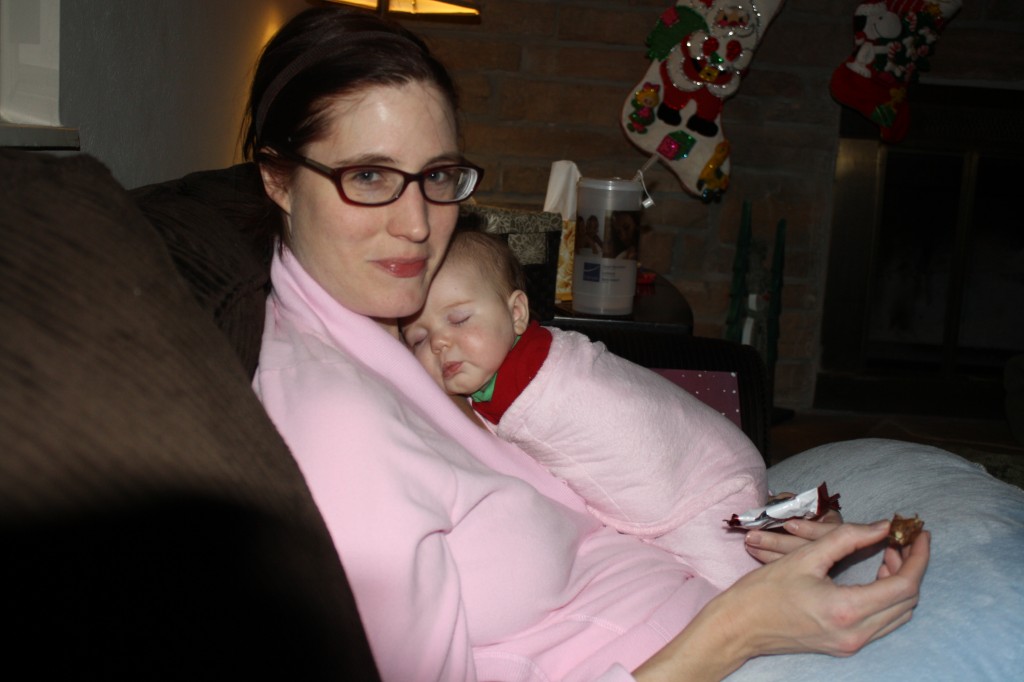
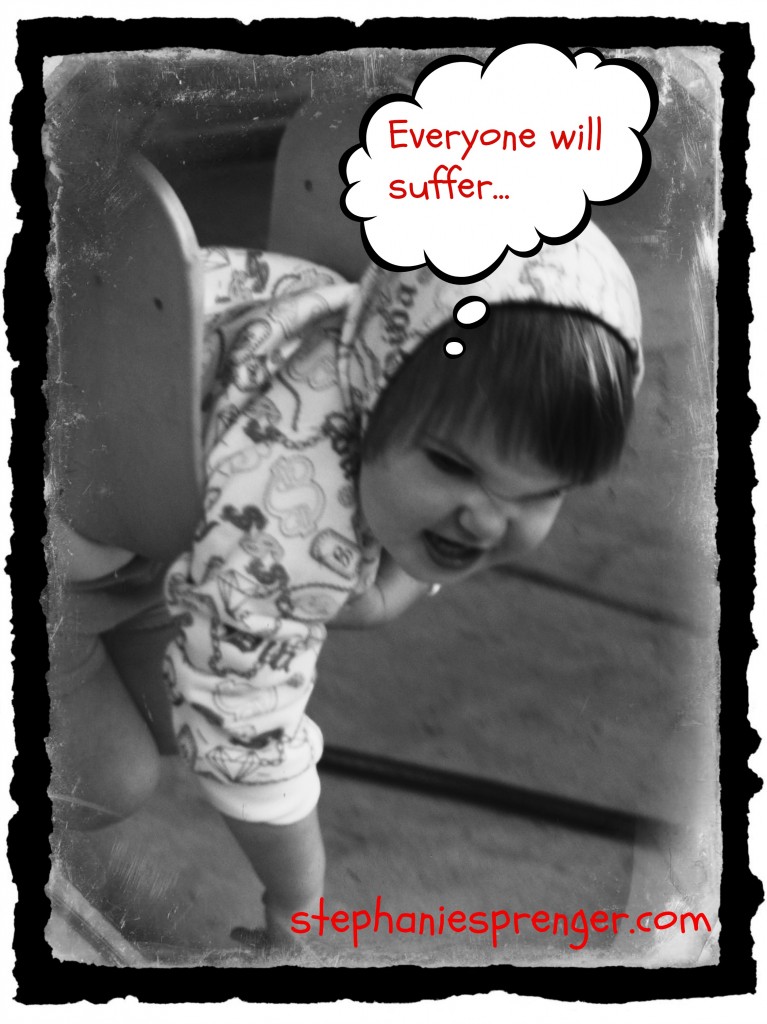
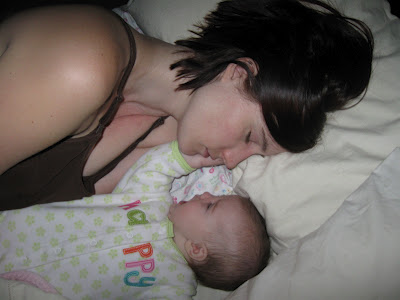
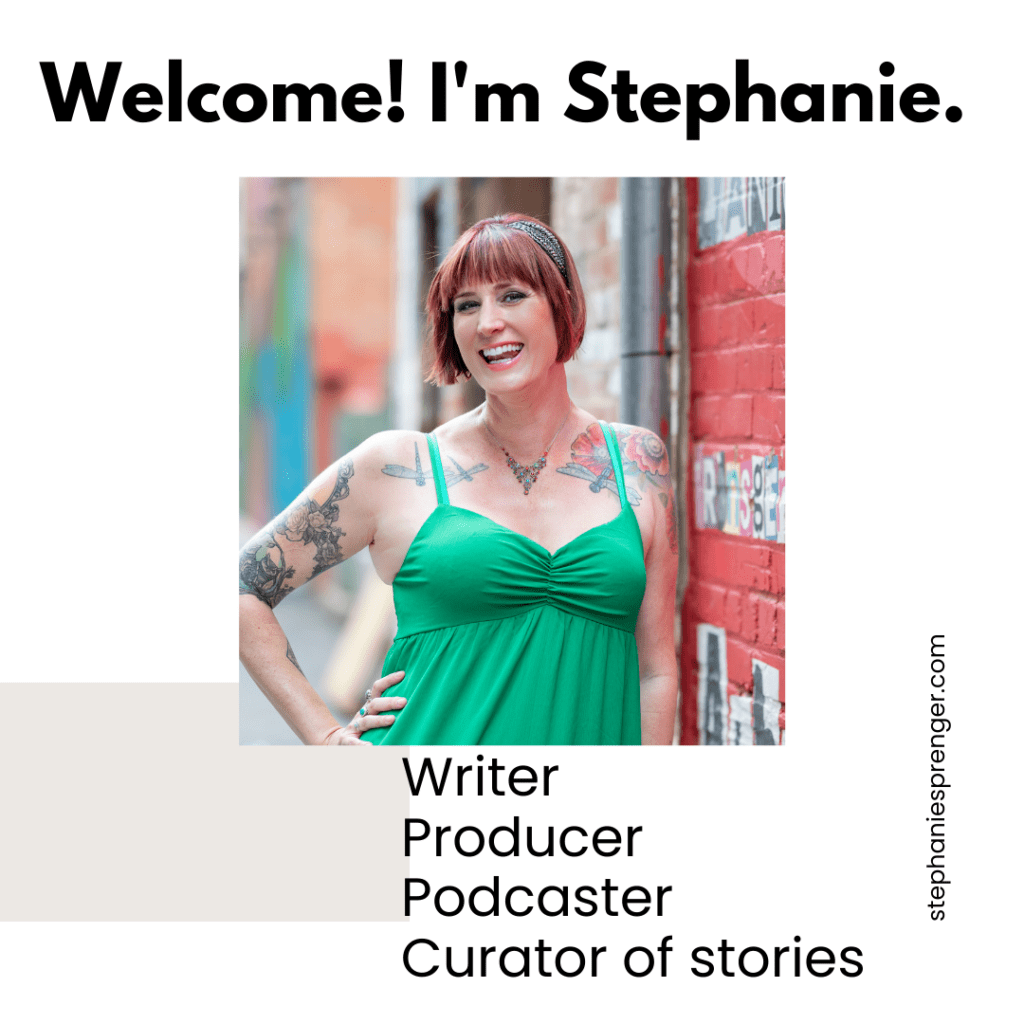

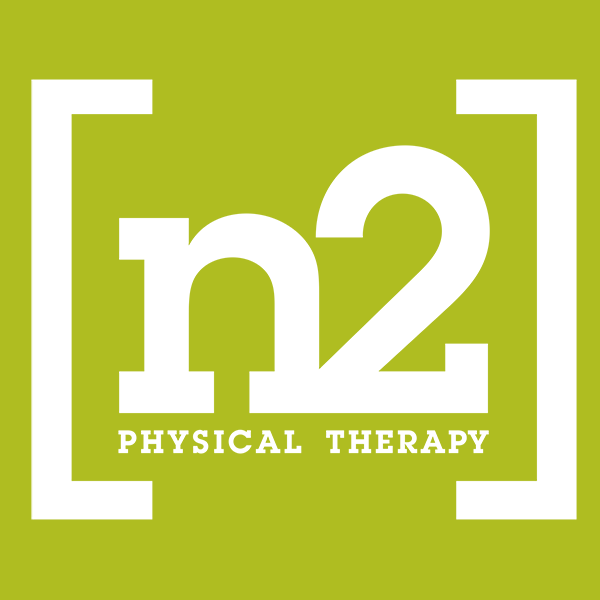







Love you. That’s all. You know the rest of what’s in my head without me having to type it, I know that.
Yep. I do. Love you, too. xoxo
Perfect response and that is all. 🙂
Thanks, Emily. That means a lot. 🙂
I.LOVE. THIS.
Everything about this article I LOVE. LOVE. LOVE.
I read it more than once and you just posted it on fb. I was on my way to bed and it caught my eye.
I was a natural in love happy mother my first pregnancy but my second I fell apart. i came unglued. But I moved on.
Thanks for this well written piece. It just made me smile.
I really appreciate that, Kerry! Thank you so much for that.
The very first thing I did after my baby was born, was call and yell at my sisters, “why didn’t you tell me??!!” I was furious. I said, ‘tell me everything else NOW.” They did. And I’m so glad, b/c then I didn’t think it was me.
That comment made me smile, Alexandra. Thanks so much for commenting. xo
I am standing and applauding you right now! I thought many of the same things when I first read this article – well, I should say “started” to read the article because once I got halfway through I knew that if I kept going it would do really bad things to my insides. Things that would make me want to binge on chocolate and frozen cookie dough and cry in the bathroom. I suffered from PPD and I actually don’t feel like I was “warned” enough. Or maybe I just didn’t really “hear” all the warnings, but in any event we need less glorification and more real. I had a similar response (nauseous, eye-rolling, shamed, guilty, frustrated, angry, you name it) after reading this post too…http://www.huffingtonpost.com/natasha-craig/10-things-your-mom-never-told-you_b_6096764.html – which actually prompted me to write an article on how the overglorification of motherhood hurts us all (mothers, fathers, women, etc.)…http://www.washingtonpost.com/news/parenting/wp/2014/12/04/mommy-the-martyr-how-the-overglorification-of-motherhood-hurts-us-all/
I totally agree that we should all tell our truths, but I also think that there is a tendency to sugar-coat things or shy away from the uglier truths because let’s be honest, even if the transition to motherhood as a whole is easy, there are definitely hard moments. I especially like this part of your article: “We embrace an archaic view of motherhood and more disturbingly, of the smooth and natural transition to motherhood. This mindset does not serve the 38-year-old former career woman who is sobbing over her bleeding nipples and wondering what the actual fuck just happened to her life. It does not serve the 29-year-old woman who has been dying to become a stay-at-home mom for her entire life and is now in the throes of undiagnosed postpartum depression.” Especially that last sentence which is basically me to a T.
Thank you for writing this.
Christine, your comment, your eloquence, and your sharing and support of this post made my day. That means the world to me, thank you so much. xo P.S. And I think you know how much I adored your WashPo piece. We need more of THOSE messages about motherhood.
Thank you! I NEVER comment on anything but the perfect motherhood article made me feel like shit. I did NOT have an easy time after the birth of my children. I had bleeding nipples. I didn’t gaze adoringly at my newborns. I just wanted to escape back to my pre-kid life and I couldn’t! Fast forward to age 6 (daughter) and age 3 (son) and I wouldn’t trade it for the world. But it was HARD. Our marriage faltered…we came back around. But it was not all roses and I would never want anyone reading that perfect motherhood article to think they are doing it all wrong. It’s okay to be sad. It’s okay to not like your husband. It’s okay to miss life before babies. It’s normal! And you will get through it!
I think all these thoughts, but you write them out much more eloquently than I could ever have. I have four children (three postpartum experiences), and they are all different. Was the second and third time easier because I knew what to expect? Yes and no. It’s just complex. Human beings are complex. I guess we just have to write out truth, with the awareness that it’s not everyone’s truth.
Well, I’m not sure I write them more eloquently than you could, but… 🙂 Thanks, Alison. I really appreciate your comment.
This is lovely. Especially the part about sleep deprivation. I feel like a mombie and I am desperately waiting for some semblance of myself to resurface. My daughter is 2.5, and my son is 7 months. I am happy, but not happy. Grateful, but too tired to care. It’s a really challenging adjustment. Thanks for posting this.
You’re so welcome. Thanks for commenting. Yeah, nobody wants to talk about mombies, do they? (Well, actually, *I* do!) We need more honesty in the dialogue about motherhood!
You are the first and last word, lady! Not that that means we won’t all be talking about the same things forever and ever–;)
Well, isn’t that the truth. 🙂 Thanks, Liz!
Very well said. There were aspects of new motherhood that were easier than I thought they would be, and some would have been downright shocking had I not had some great girlfriends tell me that I might not fall in love with my baby at first site, or that I might really crave my old life, or how hard it was to make new friends now that I was home with my baby. I think there is a place for all of our voices. Thank you for yours!
Thanks, Kathy! I really appreciate your support! xo
Love this so much!!!! What Gerson described is what I thought motherhood would be like. Even though I didn’t struggle with postpartum depression, it was still nothing like that blissful picture. I struggled to breast feed my oldest at first. I STILL (12 years plus 2 more kids later) do not and, I am certain, will not ever regain my pre-pregnancy body. I agree that her story and the celebrities we see that seem to “bounce back” to normal within weeks often make “real” moms feel inferior. Thank you for speaking for “the other side.” You said it so very well!
I really appreciate that, Lisa! Thank you so much!
Yay for this article! When my husband and I had our first (following a miscarriage), we were thrilled with the pregnancy, in a stable place in life, I had years of experience caring for infants, we had the support of family and friends, and it was STILL SO HARD! Certainly, there were moments of bliss. But within minutes, I could be annoyed with my husband (a great, helpful guy), irritated that the baby was fussy, and frustrated with all of the sudden responsibility. It gets better though — especially when sleep isn’t interrupted!
I love your last lines: “I’m so glad that Jenny Studenroth Gerson had a beautiful transition to motherhood. And if you didn’t? If you struggled? If you are struggling? That’s normal, too. You’re not alone, mama.”
Thanks so much for your comment, CeCe. I think we just need to be honest and accepting of ALL sides of the motherhood story. Why should we feel bad or guilty for being frustrated or annoyed? We’re tired, we’re hormonal, and we feel the weight of perfection hanging over us all the time… no wonder we snap sometimes!
Ohhh, the sleep deprivation. Nothing can possibly make sense to anyone with that level of sleep deprivation. I was also grateful that I had a circle of friends who did not sugar coat what life with a newborn would be like. In fact, most of them told me “you’ll really start to like your baby around month 8”.
You are very lucky in that respect. My support network of women was crucial to me, too.
It’s about honoring that there really is NO normal when it comes to motherhood. We shouldn’t feel guilty for depression and struggle any more than we should feel guilty for loving it and feeling complete. Because, really, I went through all of those emotions every. single. day. Keep the conversation going, wise mama!
Agreed, sister. Thanks for the solidarity! 🙂
I was usually glad to get multiple warnings, good and bad. I question anyone who suggests one postpartum experience negates anyone else’s. I got that from the original article. I think it could have just been phrased better, more “this is how my experience was” as opposed to my takeaway “everyone lied.”
Yep- I agree. Everyone’s experience is real, valid, and worthy of being shared honestly. I like hearing all sides, too. Thanks for stopping by, Arnebya!
I think balance on the subject is a good thing.
I’m not a mother. But for years I’ve told people I was just going to buy a child. Because there are no happy blogs about pregnancy or giving birth or having a new born.
Most of the blogs I’ve read make it very clear that women who are coping well actually bought their babies and pretended to be pregnant for 9 months – because what they are describing could not be survived and certainly not happily.
My mom has tried to convince me, for years, that it’s ok. That she’s the wimpiest person on earth and she survived it and then had 3 more, so surely I can cope. And with my friends having kids and not curling up and dying shortly after, I’ve started to reconsider. But if the internet were the only place to get that kind of info – the human race would die off.
I agree, balance is key. I too hate the negativity that surrounds the advice given to pregnant women or new moms. We need the honesty and support more. The beautiful balances the challenging, and of course it’s all worth it in the end. 🙂
Thank you for this! I was one of the women suffering from serious postpartum hormones when I read the viral article. I felt so sad that I missed me old freedom, my sleep, and my husband. What was wrong with me?? Things are better now, but you’ve said something that desperately needs to be told to new moms. Thank you again!
NOTHING is wrong with you! We need to spread that message to all new moms. I hate how sugarcoated things can be when you don’t have a support network telling you that you’re perfectly normal! Thanks for commenting!
Thank you! Just thank you. Well done. Huzzah. Without inciting the mommy wars, no less. I once ran to the bathroom and cried when another mom told me that new motherhood was a “cake walk.” That was 12 years ago and it still smarts.
I really appreciate that comment, Kristin. I tried to hard not to be adversarial or critical with this post. Thanks for noticing. 🙂
I really liked this and wanted to share it SO BAD but what is up with the potty mouth? I can’t share something like that. Just a thought, you might have a wider audience if you dropped the filthy language.
Anyway, this was me with me second child. I didn’t understand because I could have written the first blog post that yours was in response to after I had my first one. People assumed I was ok and “seasoned” so I didn’t even get as much help as I did with my first one. It was terrifying to feel so out of control and like my life was over. Thanks for writing this.
I’m glad the piece resonated with you- thanks for commenting! As for the swearing… you should check out my post in the sidebar about why swearing makes people uncomfortable. 🙂 It’s one of my most popular posts ever. Yes, I swear. I use profanity in real life, and sometimes, but not always, when I write. It depends on where the piece is published (somewhere else vs my own blog) and what the subject matter is. But ultimately this blog is where I express myself using my true voice, and I feel strongly about not filtering it to make everybody happy. You CAN’T make everybody happy; some people love the swearing and it makes them laugh or feel less alone because THEY swear. SO instead of trying to account for everyone’s comfort level, I decide to just be myself. 🙂
Perfect!
Thank you!!
Thank you SO much for this post! I am a mother of twin girls, whom I waited for and worked hard for over a long period of infertility struggle. My road to pregnancy was complicated, my pregnancy was extremely complicated, their premature emergency birth and NICU stay were complicated, an now life is complicated. It is WONDERFUL and SO DIFFICULT at the same time. I love them more than can be expressed, and I am thankful everyday that we achieved this miracle. They make me laugh and smile and cry and pull my hair out. I love cuddling them and playing with them and helping them become the amazing people they will be. But I also love other things too, many of which just don’t fit into life anymore. Things I miss. And I felt like such an asshole reading the original article you are responding to. It’s not that I want anyone to have a difficult experience. But it is hard to read such a sunshine & roses post, and not feel like a failure and alone on the “I struggle” side of things. I succeed often, but I also fail often, and I am my own worst critic. Thank you for considering all sides and making me feel less like there’s something wrong with me.
I really hate the fact that so many moms, especially ones who had a hard road to motherhood with infertility or pregnancy loss, feel shamed into silence. They feel that because they wanted to be a mother so badly, they should just shut up and not speak up about the hard part, the resentment, etc. Of COURSE we love our kids. Yes, it’s beautiful and wonderful. But it also sucks sometimes, and it doesn’t make you a shitty mom to admit that. Hugs to you, and thanks for such a wonderful comment!
Exactly. Thank you for this!!
You’re welcome!
I absolutely could not agree more. Aside from the damage that can be done by downplaying the shock and trauma of having one’s life so quickly and dramatically changed, there is also damage to a mother’s ability to listen to her instinct. In my situation, instinct was overshadowed by the pooh-poohing of a doctor who dismissed my fears as “baby blues.” The double whammy of having a second child AND finding that second child too sick for me to continue working became a TRIPLE whammy of all the negativity you described in your list in this post. I wrote about it here: http://swallowmysunshine.com/disconnect/. Thanks for offering a counterpoint to the unicorn glitter!
I really love your point about the damage to a mother’s ability to trust her instincts. That is something that just isn’t talked about. I’m glad the piece resonated with you– thanks so much for your comment!
Thank you for this. When I read the article you referenced my reaction was just “ugh”. I had to skim most of it because the tone was just so insufferable. There is nothing “wrong” with a woman if she doesn’t love every single aspect of motherhood ALL the time.
I agree. You’re so welcome, and thank YOU for taking the time to comment! I appreciate it!
Thank you for sharing the other side. I know all too well, the incredibly difficult transition to motherhood. I describe my introduction to motherhood as the “happiest and most miserable time of my life”. I desperately wanted a baby and struggled with infertility for years. I thought I was more than prepared and welcomed the changes that would come, but I was not! Had it not been for my mother and a great couple of girl friends who came to my rescue, and assured me that my desperation and depression were all normal and that it would pass, I’m not sure what the outcome would have been, and yet, I ask myself where were they before my baby was born? It seems even those that have a less than desirable transition, don’t share their experience for fear of judgement thanks to the “sunshine and rainbows” account of motherhood like the article referenced. We’re all guilty though! How many people post pics to Facebook or Instagram when you haven’t showered or slept for days? Yes, me neither, but the pic of me and my darling girl that one time in that first 4 week period that I took a shower and acutally dried my hair. That’s the one I shared with the world! Anyone on the outside looking in, I’m sure thought oh, how happy she is! I wasn’t…I was miserable….but no one wants to hear about that. I’m not saying we should be negative and post awful pictures or anything, but we don’t have to sugarcoat it all either. From here on out, I intend to be REAL with the women in my life who are expecting. I will tell them what to expect: the good, but also the bad, and I will be that nonjudgemental place to fall when they need a break, a nap, or a shoulder to cry on.
I’m so glad you had support, and it sounds like you are already an amazing support for your new mom friends. Thanks for such a thoughtful comment!
I wish I was warned more with my eldest! I mean, I knew it would be hard after reading all those parenting books, but yikes, it was a hard adjustment for sure. And honestly, I would much rather read and commiserate with other tired and miserable moms than to hear how amazing a mom’s postpartum experience was.
That said, I think it’s good to balance with positivity as well. On mom boards, I’ll see posts saying, Let’s talk about the positive side of XY and Z. Kind of like a reminder to say, hey, it’s not all doom and gloom guys.
So I think it’s a bit of both. But if I had to choose, I’d rather expect the worse and have something manageable than assume it’ll be all cheeky and find and feel terrified when it happens.
Thanks, Nina, and I agree- it should be a better balance. Positivity is so important, I hate those negative warnings, but there should be far more honesty and support out there for new moms.
Perfect response. The original post triggered something in me too and I also posted about my experience. Congrats on getting picked up by HuffPost!
Thanks, Laura! It is nice to know I wasn’t the only one who felt that way!
I think this is my favorite post of yours I’ve ever read. Well said.
Wow, thank you so much for that!
WOW! Perfectly written and executed. Thank YOU. The highlight of this article was: “Our babies don’t all coo blissfully and sh*t unicorn glitter.” I’m so glad there are MOMS like you out there to help the moms like ME not feel weird and out of place. Keep encouraging, keep making moms smile and laugh, and keep spreading hope.
I have a huge smile on my face after reading that comment. Thank you SO much! You made my day.
When I read the Jenny article, I was so happy for her. So happy that her experience was absolutely nothing like mine. I thought many things and, most importantly, that I should write them all down and share it so that all the moms who felt as crushed as I did after reading her article wouldn’t feel alone. But then you did it! And you did it so much more eloquently than I could have! I was so relieved I cried. Thank you a million times over for writing this. I’m not sure I’ve ever read anything online that has inspired me enough to comment!
You have no idea how much that comment means to me. Thank you, thank you, thank you. I couldn’t have hoped for anything more when I wrote this. xo
Bravo! Well said Stephanie. We love motherhood and we love our children, but we talk about how hard parenting is because it’s damn hard! Throw depression into the mix and shazam!
Everyone comes from a different experience, but you’re so right; we need to go easier on each other and come from a place of more compassion and understanding.
Thank you so much for that, Linda. Compassion is the key.
I love this. Tell it like it is, girl!
Thanks, Deva!
Wow – I just shared your article on my facebook page, along with the words: “There are parts of this blog where I feel like Stephanie from ‘Mommy, for real’, has read my mind. Or perhaps even part of the promise behind my book…”
You are brilliant! Thank you for writing this article so exceptionally well, particularly because of the reach you have had with it. I have written a book – to be published in about 10 weeks times – which is based along this very idea. I was so ‘over-warned’ with horror stories, that I got pi$$ed off and stopped listening. They never felt like someone genuinely telling me their story to support me and let me know that it might not be a softly lit bed of roses. I get it now, because I did struggle. ALOT at some points. I could go on and on, but really I just want to say… thank you and congratulations.
With much respect from a kiwi Mum, down under xo
Wow, I can’t tell you how much your comment made my day. Thank you so much for taking the time to share that with me. xo
I really enjoyed your piece. I read it first then read Jensy’s blog. If I’m honest, her post made me puke a little bit and also a bit angry. Of course there is nothing wrong with loving motherhood so utterly, and as you say, no one person owns the sole narrative to motherhood – she’s right to claim her own. But she makes no mention to the fact that there is also truth in those warnings for most mothers. That there are reasons to be warned. That in fact, it is more dangerous not to be warned, than it is to be warned. At least for the mums who find motherhood to be unadulterated bliss, and those warnings a bunch of fearmongering nonsense, their outcome is only positive. Their expectations were low and so their delight at how easy it is, is enhanced by how little they were expecting to enjoy it. The flip-side to not warning mothers, is that if everyone tells the Jensy-story, and a new mum experiences nothing like it, the consequence of having such high expectations only to have none or few of them met, could be disastrous. I think Jensy completely misses the notion that there is more than one narrative. It is totally fine that she had/is having such a wonderful time, but for her to omit entirely the notion there is another, less rainbow-y, more common narrative to be had, puts unfair pressure on new mums who are having a hard time who read that. It is irresponsible of her. All it would have taken was a nod of deference to those mums who have it harder than her, and it wouldn’t have been such a smug puke-fest of a post.
I agree with you wholeheartedly. Thanks so much for such a thoughtful comment. 🙂
This is perfect! Its true, in today’s world you are more than warned before you have a baby.
Sleep deprivation is the process of turning us Mom’s into living, breathing, walking zombies!
Other additions:
*You may puke enough in your first trimester that you could swear you have a six pack
*You will be spit up on, peed on, and possible pooped on: a lot
Thanks, Erin! 🙂
I haven’t read the article you refer to, but as I read your description of it, I had similar thoughts to yours regarding how someone with post-partum depression might feel on reading it. Perhaps that is partly why people don’t often talk or write about the joy of parenting?
I had two difficult births, the first was followed by sheer delight that after years of hoping and waiting I had a wonderful baby, AND there was exhaustion and tears. I think that for most of us that’s reality – it’s a mix. The same was true (in reverse) after my second daughter was born far too early – months of anxiety, guilt and grief, and yet there were moments of joy and feeling whole again.
So I agree with you, there needs to be a broader picture drawn of new motherhood – and a fuller one, letting mothers now that there is room for all experiences.
A broader picture of new motherhood… you said that just perfectly. Thanks so much for your support, Yvonne!
A-to-the-MEN.
Also, heart you <3
Thanks, love. Heart you, too. xo
I really liked your post because this was my experience, but I also have mixed feelings. I’ve noticed that so many moms (and women in general) tend to emotionally react to other women’s stories, lifestyles and choices and take them very personally. I noticed that you made a disclaimer and acknowledged that this blogger has a right to her own truth but at the same time criticizing the sentiment.
How much kinder would the world be if we could just listen to other people’s stories without comparing ourselves to them or making it all about us.
It seems like the new moms of today are terribly insecure and have a hard time separating themselves from other people. It is a Co-Dependent dynamic. I’m not sure why that is…I understand throughout history, people have been socially competitive, but it’s at the point where another woman’s lifestyle/choices nearly emotionally cripple other women and they can become reactive. It’s one thing to not agree with other women’s choices, or not resonate with them, but it’s another to have your identity and own truth so entangled with another’s that we stop listening and make it all about us.
I think you’re right that moms should not internalize and personalize another mom’s experience. However I think the bigger concern is our culture in general beginning to apply unrealistic, idyllic images of motherhood without giving real, needed support to mothers who are struggling. I think an honest, supportive dialogue is the most important thing.
I was really disappointed to see my comment wasn’t published! Your audience will eventually catch on. You might want to read about how deleting oppositional comments is bad for your brand.
Kristie, I haven’t seen any other comments from you. It’s possible it went to spam. I publish all comments, unless they are wildly inappropriate. You should check out my American Girl Doll post if you think I delete oppositional comments. And if we’re doling out advice here, YOU might want to consider giving someone the benefit of the doubt before you make a snap judgment. I did not delete any comments from you.
THANK YOU. The original article irritated me. Come on, most new moms are not rainbow shitting unicorns like she describes. I doubt her experience was as wonderful as she makes it out to be. If it was, good for her. But I for one would have loved a bit more warning. Warning that I would become completely incontinent and need a foley catheter, that my milk would not come in and my baby would be kept in the hospital for losing too much body weight and then in the NICU. That breastfeeding never worked and I ended up exclusively pumping for 6 months. (That EPing is even a thing). That spending the months doing nothing but being connected to a pump or trying to get a colicky baby to stop crying were a complete mind fuck. That I will learn that the forceps delivery ended up snapping muscles off my pelvic bone leading to a bladder prolapse that will eventually require surgery. That no one calls me sexy and one year later I still can’t fit into my pre-baby clothes. And that its ok to feel cheated, to feel overwhelmed, depressed. Sure, a small percentage of the population may experience nothing but puppies and rainbows, but this woman is NOT speaking for the majority of women. So thank you for doing that.
You’re welcome. Thanks so much for taking the time to share your experience here. Sending you lots of positive energy and love!
Indeed. Hallelujah. All that shit. Thanks for this . My firt time reading your blog. Well said!
Thanks! I hope you’ll stop by again! 😀
Thank you for writing this. I had dreamed of being a mother for so long that when I had my son it didn’t feel real. I kept thinking someone was going to come in and tell me there was a mistake and take him away. And then he had colic and acid reflux so bad that when he was awake he was screaming. When I said something to my mom she told me that was what babies do. So I started internalizing everything. He didn’t want to breastfeed, my fault. He wouldn’t stop crying, That was my fault too. By the time the people around me realized it wasn’t normal baby crying I had myself convinced I wasn’t a good mother. It was very difficult when you wanted something so bad and then seemed to suck at every part of it. It didn’t help that my nephew was ten weeks older and the perfect baby. And next thing I knew the baby blues had become full fledged post partum depression. No one understood how I was feeling. I am very glad you wrote this post and only wish someone would have told me my feelings were ok.
I’m so sorry that you had that experience, and I too wish someone had told you your feelings were OK, because of COURSE they were! The worst part of going through something like that, such a hard transition to motherhood, is when on top of all the struggles, you feel like something is wrong with you or that it’s your fault. Thanks so much for sharing! This is such an important topic.
I have an almost 3 year old and a five-week old. Seven of your bullet points describe me, and I am okay with that.
And for those who are reading the comments, no one tells you that you may get mastitis while 29 weeks pregnant, require surgery when your daughter is only 11 days old for said mastitis, and will still leak breastmilk out of holes other than the nipple even at 5 weeks post delivery.
I love this campaign! Yes, there are so many struggles but also amazing things we just don’t even know to expect, and we need to support each other.
I don’t understand what is wrong with me. I don’t feel any of thease pains. When my baby sleep I can’t sleep because I miss him so much. I cry to the taught of having to go back to work. I laugh so hard with my husband when we are all the 3 of us. I just want to be with them all the time and I wish time can stand still. When my son was born my life got out of chaos and became simpler I now have routine and keep my house clean because I want to have a nice place to raise my child. I go for a walk with his stroller because I know it help him sleep and it help me lose the weight. Why do I found motherhood so easy 🙁 What do I do wrong? Why can’t I be normal like everyone and not panicking at the idea of lufe without my family 🙁
I.LIKE. THIS.
I think this is my favorite post of yours I’ve ever read.
Thank God the original “they never told me..” had your link under it on Facebook: I was literally about to have an anyerysm after reading the Jenny G. article on huff post that a family member had posted. This is what I wrote to my poor unsuspecting relative:
Not to be a drag–bc having babies is in my book the most amazing journey on the planet, worth every minute–but for anyone who has gone through postpartum depression, this essay, while well- written, is absolutely crazy making. Because the “no one ever told me” can just as easily but painfully apply to “no one ever told me that having a baby that I wanted more than anything could plunge me so deeply, so hideously into depths of despair from which I felt truly and surely would never disappear.” Seems to me people say all the time, or impart, much more than the horror stories she writes of (which are all kind of surface-y you’ll never sleep again stuff: tame when compared to PPD or PPAnxiety) is the idea that motherhood is natural, simple, instinctual, and if you feel negatively about anything surrounding it, you must not be very good at it. The truth is, there are as many DIFFERENT mommy stories as there are mothers, and maybe the focus should be not on comparing levels of bliss, but supporting other women whether the experience is sunshine and roses or dark and terrifying. It’s very difficult to talk about PPD precisely because there is such shame surrounding it (I.e. How can you be anything but happy?! You have a healthy new baby!) articles like this throw us back into the shame spiral. This article is the kind of thing that back in the day would have sent me into a tailspin.
Thank you for your awesome post. I can’t tell you how much it means to those of us who have suffered. It is also interesting to note that with my first baby, I was much like you and your daughter. It was the second time around that was so painful. Every time, every baby, different.